This is part four of the five-part series “In Defense of Fairy Dance,” a collection and comprehensive analysis defending the positive aspects of Reki Kawahara’s “Fairy Dance” arc in Sword Art Online. Research was gathered from the anime (sub and dub versions) and volumes three and four of the light novel series. This is in NO WAY written to justify all of the second half of the series, nor is it to say that it is particularly well-written. Instead, it is a half-full glass of the neat things the series did, and why I enjoyed myself with most of the content despite the glaring flaws. HEAVY SPOILERS EXIST.
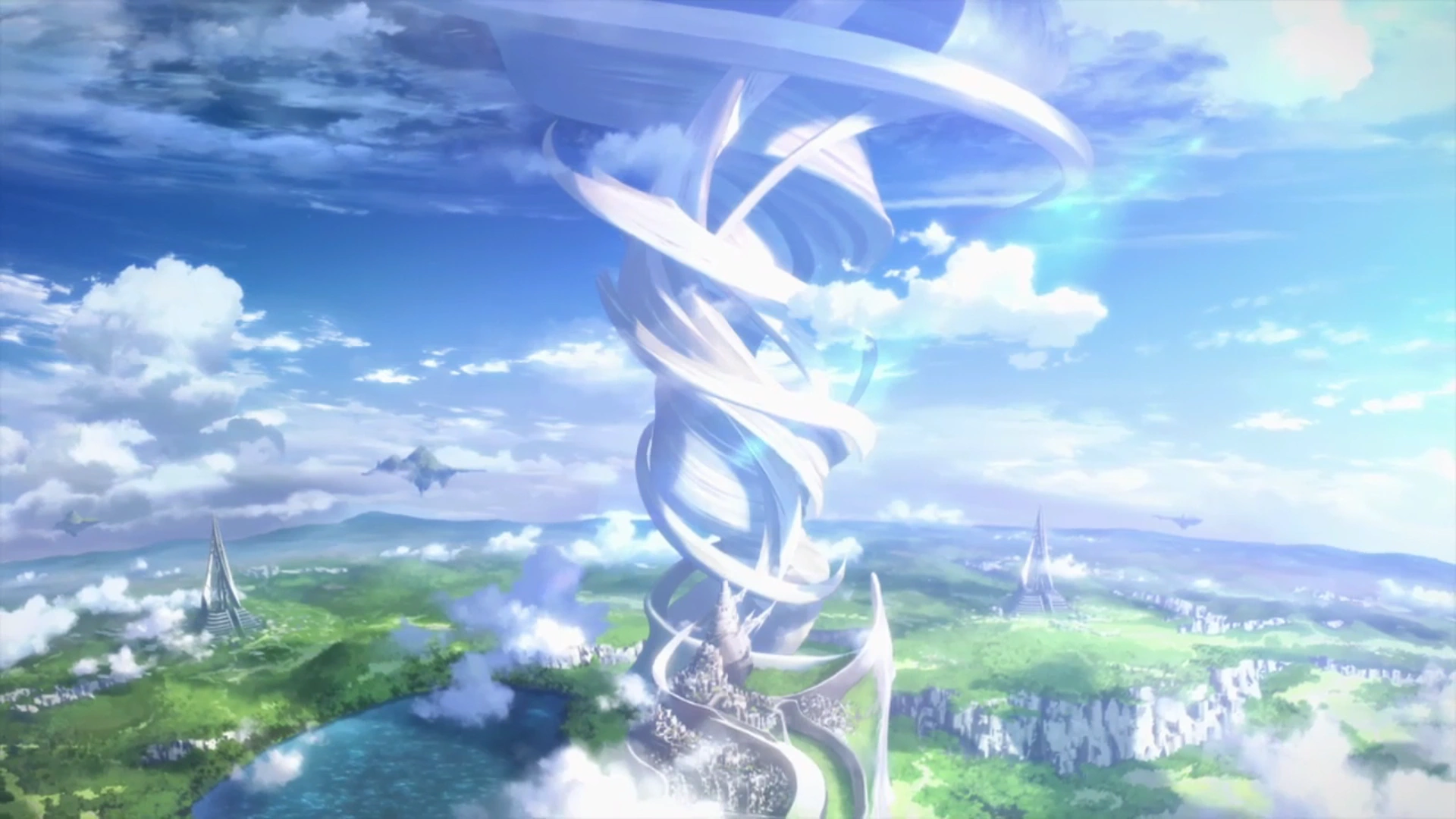
Much like with PART III, this section will focus on the dramatic irony behind ALfheim Online itself, along with VR gaming altogether. Again, we’ll be analyzing many of the quotes from the light novels to bring the truth to light. The anime does a fair job at captioning the satire of the entire ordeal, so bringing in further clips would only clutter the analysis. There are pictures, though. Many pretty pictures.

“Land of the Fairies,” Eh?
Don’t worry, Kazuto thought the exact same thing. I mean, what’s a bunch of fairies doing in games anyway? After nearly dying in a world of knights and castles, nobody wants to be a dumb fairy – They’re just bloated pixies. But when Kazuto questioned Agil, apparently ALO isn’t just another laid-back, casual MMO. No, in fact it’s “actually pretty hard-core,” as the system is set up to be entirely skill-based so that player skill is rewarded. PK-ing is encouraged as a result. Where each VRMMORPG tests its players, Leafa believes that pride is what was being challenged in ALO. “How hard could you struggle? If you lost, how would you regroup and hold your head high? That was the test, (24, vol.4).” Also, imagine losing to a bunch of fairies. That’s dumb.

Right off the bat irony is up and ready for a home run. That should be every viewer’s first thought – What’s so tough about ALfheim? The second arc’s game is totally based on athletic abilities rather than keyboarding techniques, essentially meaning that if you lose in-game, it means that you literally weren’t strong enough. It’s also funny how they mention it’s basically SAO with magic. Magic. Doesn’t ALO feel magical? Everyone has glittery wings that allow them to fly higher than in any other MMO, and who doesn’t want that? ALO must be a DREAM COME TRUE, no flaws whatsoever. HAH! What a joke.

The Sad, Scientific Truth behind ALfheim
I don’t want to turn this already-way-too-long series into a summary, so let’s just jog our noggins. Sugou inverted SAO into ALO, kidnapping +300 entrapped minds as tools to further his research. That being, to study and prove that if the brain could be significantly controlled, then so could emotions.
“’Ha-ha! You won’t be singing that tune for long. Very soon, I will control your emotions in the palm of my hand. Look, Titania. Can you see them? Thousands and thousands of players, diving into this expansive world, enjoying the game. The thing is . . . none of them has any idea that the full-dive system isn’t just a tool for mere entertainment!’ (102, vol.3).”

Games are meant to be innocent fun, nothing more or less. But here, the grand Fairy King has rewritten the rules and taken control of all pawns on the board. He cheats, abusing the gift of the virtual world to benefit his own research – And at the extent of risking human lives, to which he casts aside! Sugou is a villain in both pixels and cold blood, and I’d say he’s a good one at that. He is, after all, a scientist, and furthering one’s knowledge of the world whenever and WHEREVER possible is sincerely worth pursuing. While you can only go so far to justify his motives, Sugou is still a creepy bastard who treats his soon-to-be wife without any regard, and he also kidnaps kiddos and pokes around their brain while they sleep. His jealousy over Kayaba’s success drove him to be even more passionate, yet he was outraged when the creator sacrificed himself.
“’Mr. Kayaba was a genius. But he was also a fool. How could he utilize that incredible potential just to create a stupid game?’ (103, vol.3).”
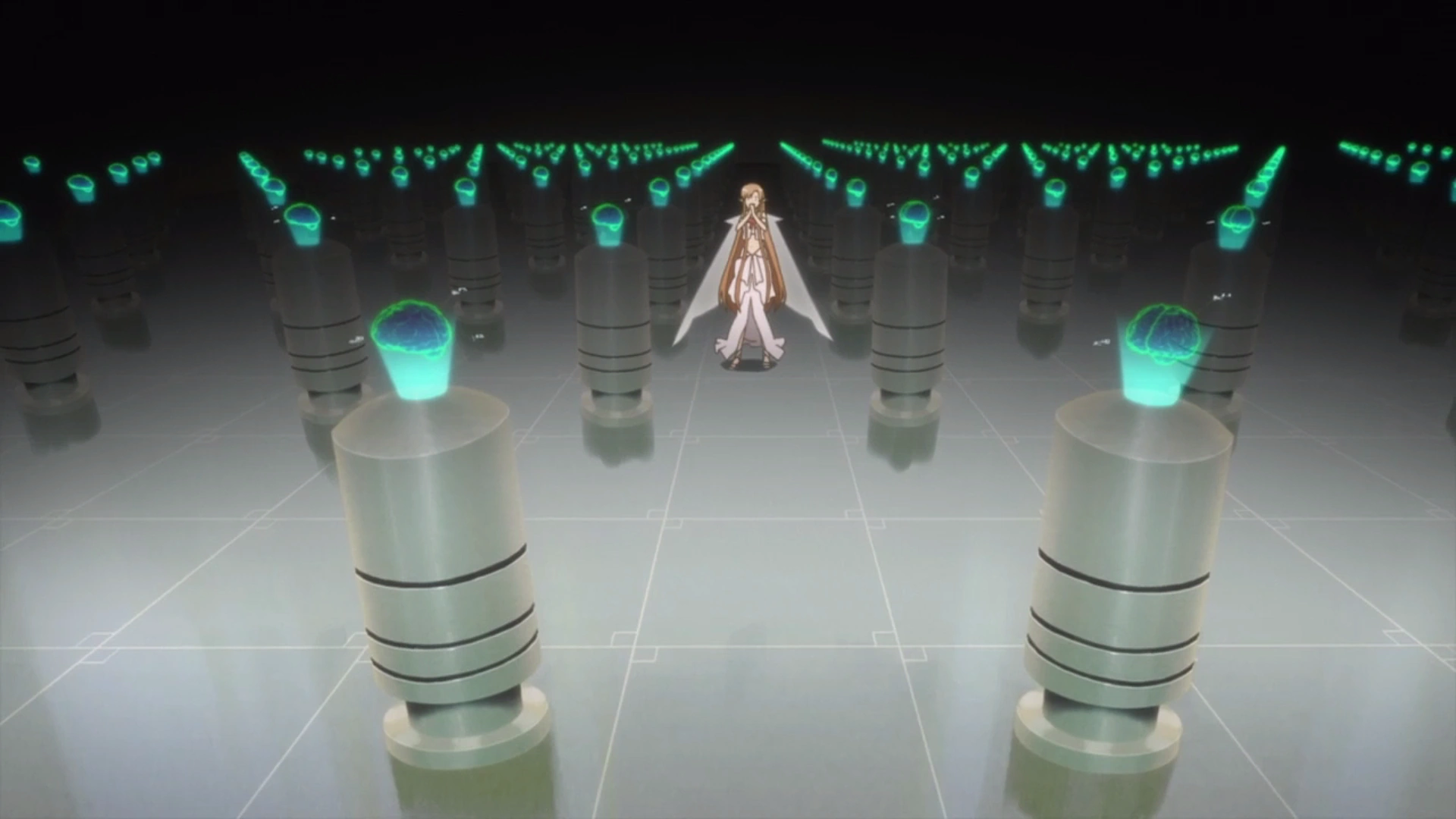
But his methods are where I see the crowd diverge. His henchmen find it more humane than exposing test animals’ brains to open air and jamming electrodes into them. “I mean, all they’re doing here is dreaming.” Very true, it’s all one big farce, and the series mentions that research on the human brain is incredibly slow due to the, well, human subjects needed. It’s not like you can get folks to consent on the matter, though. Otherwise we’d be leaps and bounds ahead of what we know! His research is admirable, but Sugou’s methods cross the line of sanity. He’s also an ass, which adds to what makes pure villainy – hatred. He’s supposed to be unlikable, and I think we can all agree that he is without falter.
This is One Tree You Can’t Climb

After giving Kirito the info-dump as to the features in ALO, Kirito assesses that the World Tree – The Master Quest – is essentially unbeatable because the only indication to standing a chance involves guild cooperation. However, the prize is only awarded to a single race that completes the mission, and no one would compete if it just means forfeiting the prize to the other team.
A while later, Kirito truly understands the game’s irony. “’ALO’s a nasty game, testing its players’ greed like this. I’m guessing its designer is a real piece of work,’ (191, vol.3).”
Oh trust me, he is. He is the self-proclaimed “Fairy King.” He’s also a narcissistic fiend.
Even Leafa, while tackling the Tree at the end of the series, feels the unfairness in the omnipresent guardian knights. She’s starting to sense that this world isn’t built around the hopes and dreams that flying fulfills. Something’s amiss. I just love this quote:
“But now, for the first time, Leafa began to sense a kind of malice within the system. Some unseen force, which was supposedly keeping everything in a fair balance, was wickedly, cruelly swinging a bloody scythe at the players’ necks within this arena. There was no way to overcome this trap, (124, vol.4).”

And when Kirito finally resurfaces (because he’s too OP) he becomes speechless. He has some excellent mental grammar, though:
“The grand quest at the center of the game – to reach the city atop the World Tree and be reborn as true fairies – was nothing more than a giant carrot, endlessly dangled out of reach of the game’s player base? So not only was this battle’s difficulty set to the extreme, the door was locked by nothing more than the will of the game manager . . . ? (133, vol.4).”
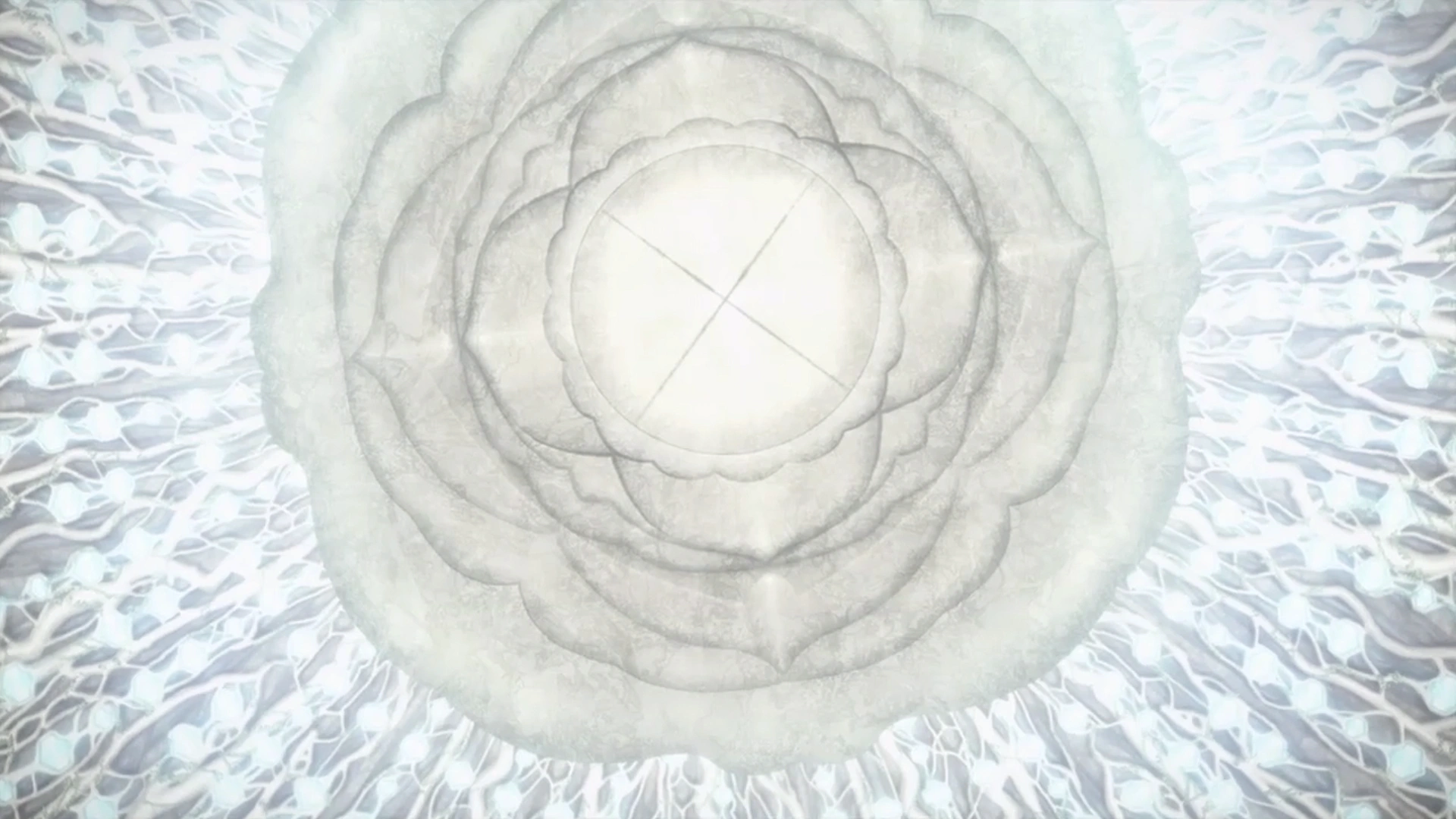
THIS RIGHT HERE is the MOST SIGNIFICANT piece of DRAMATICAL IRONY found in the work. We’ve covered Suguha and Asuna, but this realization is the ultimate plot underlying Sword Art Online. Even the revelation to Kirito that Sugou – the nasty man trying to steal his girl IRL – is the mastermind doesn’t compare in shock value to this. The game is rigged. It was from the start to its game manager’s end. Those who fought for life in this world – to fly high among the stars and one day, a palace in the sky – is all for not. Hell, the option doesn’t exist. Just like you couldn’t log out of SAO, a freakin’ game, ALO’s master storyline isn’t designed to finish – EVER. What keeps players like Asuna and Kirito coming back to VRs if they only bring painful revelations and ironically cruel clickbait?
Treasures ALO Gave its Players
The irreplaceable positive memories and true friendships formed, that’s what. People form ideals off of scenarios like these. For Kirito, everything was just a game. “Kill what you want, take what you want.” After surviving SAO and enduring ALO, he’s seen enough to realize that “there are things you have to protect and uphold because it’s a virtual world, even if that makes you look stupid, (168, vol.3).” Paraphrasing from the novel: Though it sounds paradoxical, you can’t completely separate the player and the role-playing. Letting your inner greed run wild in the virtual world and that will come back to haunt your real-life personality. The player and the character are one in the same. That’s powerful; it’s an influential statement I’m sure actors, cosplayers, gamers, and the like can relate to.
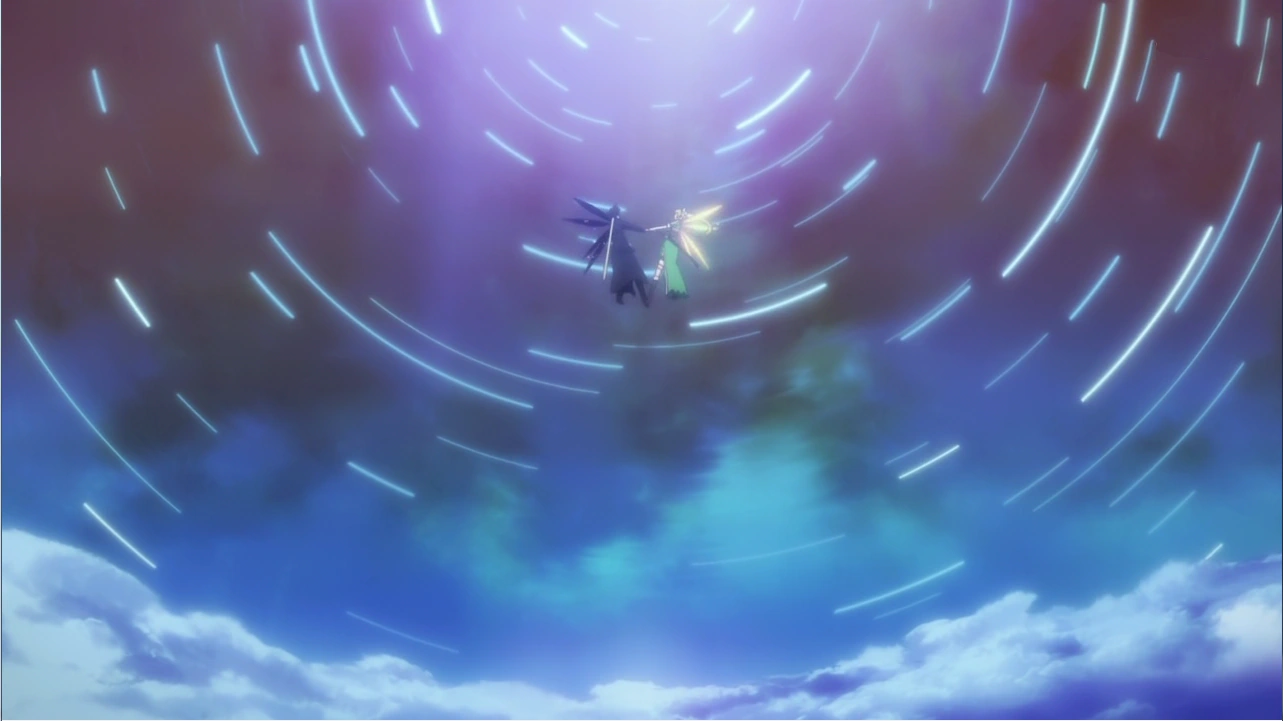
For Leafa – No, for Suguha – she found true friendship along with hope and purpose through her wings of freedom. When rescuing Tonky from the three-faced giant, Sugu wasn’t going stand and watch the murder of something she’d labeled as a friend and given a name. There’d be no point to playing a VRMMO if it’s all fake! Even when they get out of Jotunheim, she reflects on the happy accident that arose from falling in the first place, and all of the rare experience and friendship they gained being side-by-side.
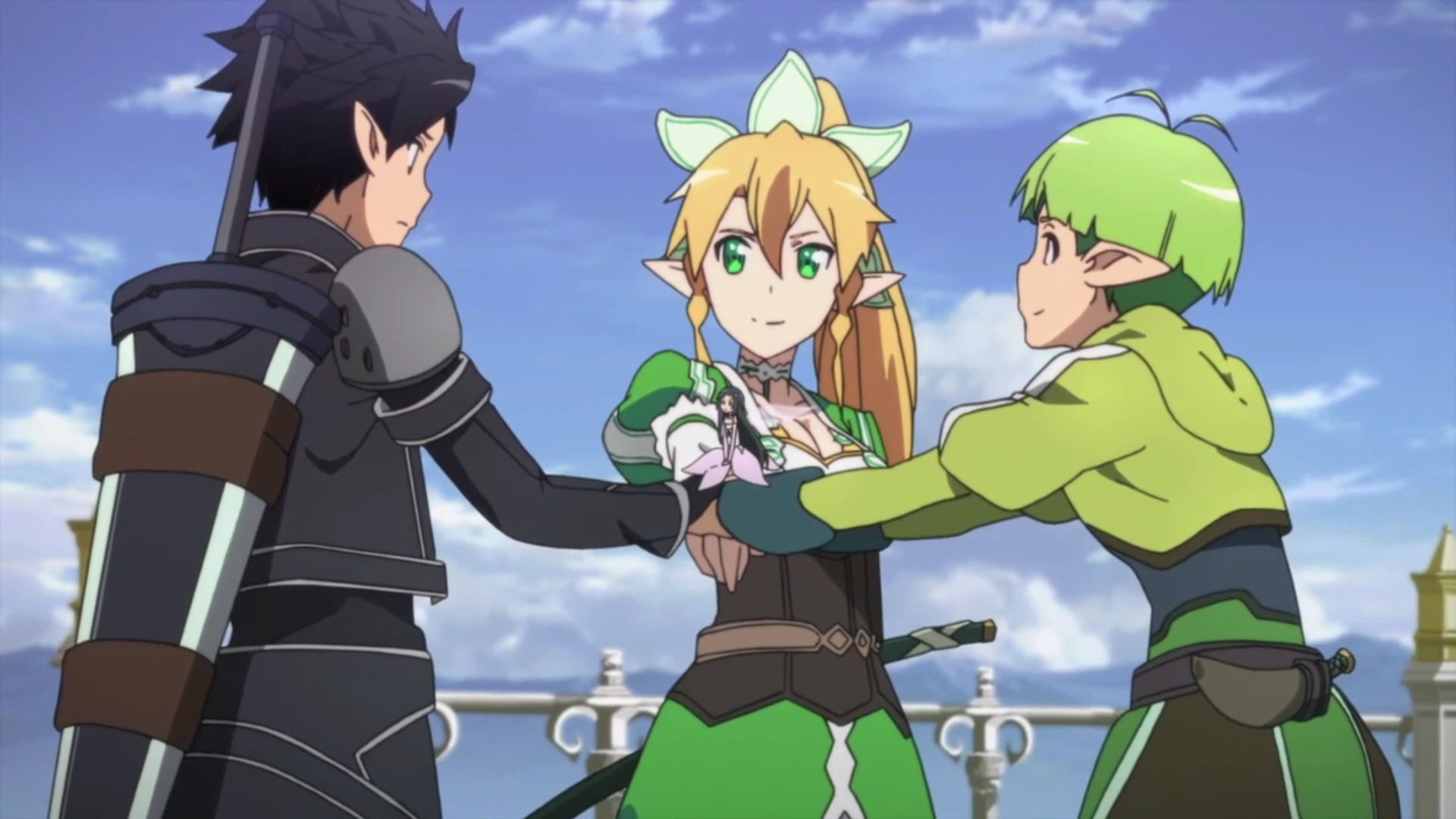
To think that Sugou can manipulate these emotions is catastrophic, and Asuna of all people knows this by heart. “The research being done here was one of the great taboos, like human cloning. It wasn’t just a simple crime. This was the destruction and desecration of the last vestige of human dignity: the soul, (59, vol.4).” Robbing humans of emotions doesn’t make them human anymore, yet the person reaping the souls of others is the most inhumane of all. It’s almost unfathomable, really, and I only wish the series took this issue more seriously.

Lastly, along with memories, friendships, and ideals comes initiative – the drive to take charge and change fate. In his final bouts, Kirito reflects that ultimately, a virtual world is just a game, and he thought it was all real. He ponders his desire to return to the deadly SAO just because he was that world’s strongest hero. This notion of might clouded his judgement upon landing in ALO to foolishly save the princess without professional help, and it sadly resulted in borrowed mental toughness, nothing more. “I must have been very happy regaining my imaginary power, crushing other players and satisfying my ugly pride and self-esteem, (151, vol.4).” And even though the hideous God of this world is in absolute dominance, Kirito still prays. To a God in the real world? To a system glitch? To fate itself?

The most logical choice is the one whom blessed him with strength in the first place. The God of that old world. And just like that, Kayaba shows up in disappointment at what has become of the ideals which blossomed from their duel – That the HUMAN WILL could surpass a COMPUTER. Kirito wins not because his stats were higher, or that his blade was sharper. He wins because his will overpowered Sugou’s corrupted vision. The God of Old indirectly causes the downfall of the New God by channeling his spirit into the knight that beat him in a past life. That’s golden irony.
Thank you for reading! Please, share any thoughts below and stay tuned for PART V & FINALE!
(I own neither the anime nor the light novel series of Sword Art Online. All images and videos belong to A-1 Pictures and Reki Kawahara.)


Pingback: CAFÉ NOTICE | Aftermath of Being Logged in ALO | Takuto's Anime Cafe